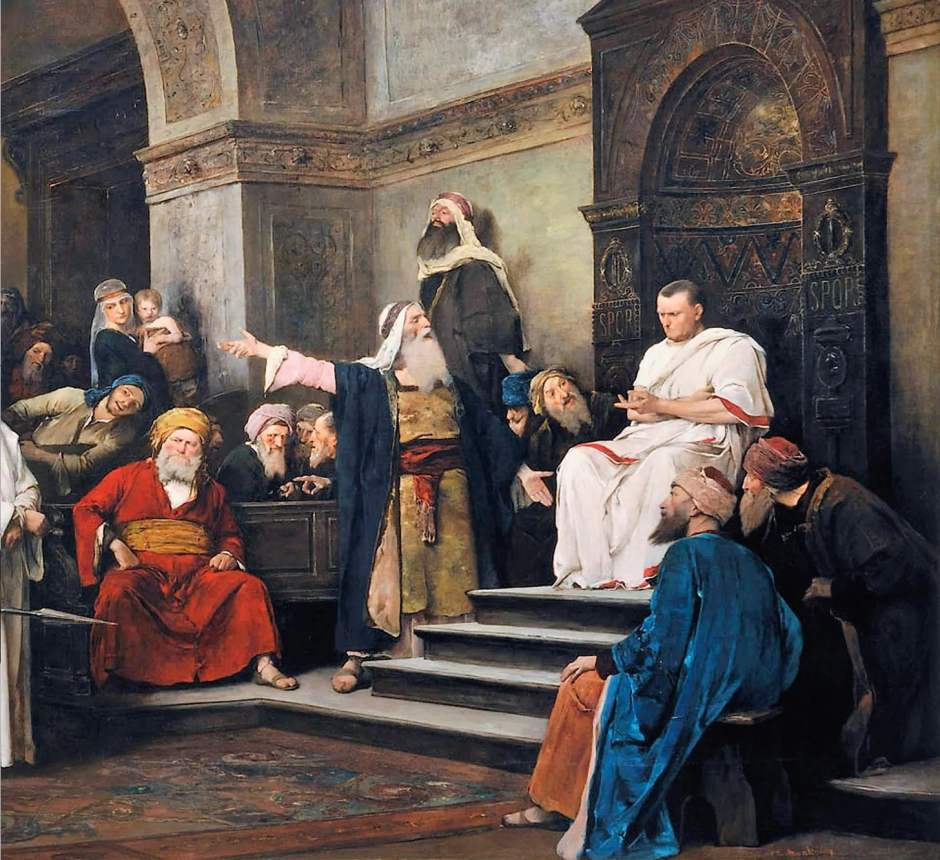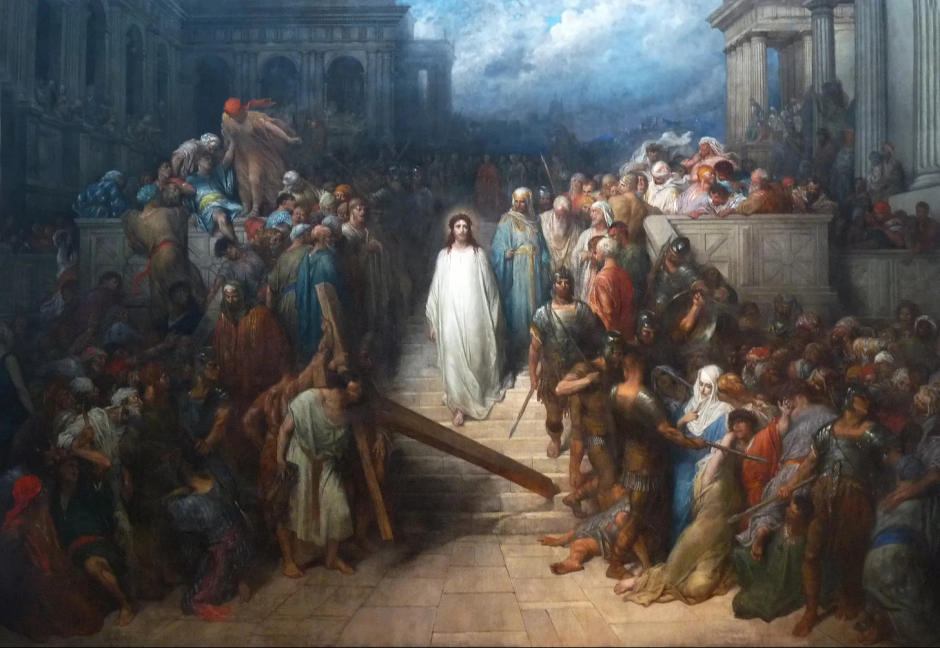By Francis Christian
Francis Christian's Essays
April 14, 2025
There can be no justification at all for the view expressed widely in the twentieth century and into our own, that the very existence of truth is contingent on somehow being able to define the term in human languages for a group of people! This astounding exercise in hubris tries to make us believe that "your truth" or "my truth" is always relative and is dependant upon the finite workings of the mortal organ known as the human brain!
Immortal and absolute truth that lies beyond the ability of our finite minds to fully grasp is actually a much more rational conclusion. Such a conclusion also acknowledges the fact that inherent within all of us is the moral code and ethic that is written in the stars and in our hearts and which in some parts of the world is referred to as "conscience".
As the German philosopher Immanuel Kant wrote, "two things fill the mind with ever new and increasing admiration and awe, the oftener and the more steadily we reflect on them: the starry heavens above and the moral law within."
The latter has a lively existence in cultures as diverse as the geographies from which they hail. Nor is it resident only after a period of learning has embedded it in our minds. Rather, as an entity that has its independent existence in the consciousness of all those that belong to the fraternity of nations, it has surprised many readers of comparative history and literature with its essential unity.
For, separated as they are by oceans and mountains and land and sea, these people of varying hue and shape have aspired broadly to a set of rules which are remarkable in their consistency from time to time and place to place. These rules may or may not be called "truth" and may or may not all be expressed in similar terms by those who recorded their history, but where in the histories of all these peoples have valour and selflessness and honour and gentleness and kindness not been held up as beacon lights for the aspiring soul?
And we can all sense, if we will, that the workings of science and the unraveling of beauty in poetry and dance and song are truth. The images of the stars that we can now gaze at if only from a distance is also truth.
There cannot be a rigid confinement of truth to a particular time and place. To impose such a rigidity would be to impose a limitation upon truth and truth thus fettered would not belong to eternity, but rather to a confined time, a restricted space. It was not made to be limited in this way. Rather it administers its transcendent judgements from the portals of the forever and may thus encompass all times and all places within its realm. It straddles the heavens, but is able to descend to the deep recesses of our infinitesimal lives. It ministers to the heavenly bodies and keeps them in tow, and yet can minister equally well, perhaps better, to our souls. It is at once mightily clad with splendor and clothed in beggar's garb.
As witnessed by the turbulent, unsettled lives of the existential philosophers for example, the pursuit of truth can be a frightening thing both for the pursuer and for those who are around him or her at the time. Such a pursuit is not like pursuing a wild beast, not even a dangerous wild beast, not even one which may turn round and attack the pursuer; all these are tame perils compared to the benevolent peril of being pursued at every turn by the very thing you seek to pursue. Truth can be a relentless pursuer of those who seek it out - and it can stretch like a mighty and encompassing shadow over the pursuer as he speeds across the wilderness in search of the thing that in fact lurks always at his shoulder. The English poet Francis Thompson's magnificent, tender, poem, "The Hound of Heaven" describes God as the Truth, as the pursuer, the hound: (excerpts):
I fled Him, down the nights and down the days;
I fled Him, down the arches of the years;
I fled Him, down the labyrinthine ways
Of my own mind; and in the midst of tears
I hid from Him, and under running laughter.
Up vistaed hopes I sped;
And shot, precipitated,
Adown Titanic glooms of chasmed fears,
From those strong Feet that followed, followed after.
But with unhurrying chase,
And unperturbèd pace,
Deliberate speed, majestic instancy,
They beat-and a Voice beat
More instant than the Feet- 'All things betray thee, who betrayest Me'.
Across the margent of the world I fled,
And troubled the gold gateway of the stars,
Smiting for shelter on their clanged bars;
Fretted to dulcet jars
And silvern chatter the pale ports o' the moon.
I said to Dawn: Be sudden-to Eve: Be soon;
With thy young skiey blossom heap me over
From this tremendous Lover- Float thy vague veil about me, lest He see!
Fear wist not to evade as Love wist to pursue.
Still with unhurrying chase,
And unperturbed pace,
Deliberate speed, majestic instancy,
Came on the following Feet,
And a Voice above their beat- 'Naught shelters thee, who wilt not shelter Me.'
Nigh and nigh draws the chase,
With unperturbed pace,
Deliberate speed, majestic instancy;
And past those noisèd Feet
A voice comes yet more fleet- 'Lo! naught contents thee, who content'st not Me.'
Naked I wait Thy love's uplifted stroke!
My harness piece by piece Thou has hewn from me,
And smitten me to my knee;
I am defenceless utterly.
I slept, methinks, and woke,
And, slowly gazing, find me stripped in sleep.
'Strange, piteous, futile thing!
Wherefore should any set thee love apart?
Seeing none but I makes much of naught' (He said),
'And human love needs human meriting:
How hast thou merited- Of all man's clotted clay the dingiest clot?
Alack, thou knowest not
How little worthy of any love thou art!
Whom wilt thou find to love ignoble thee,
Save Me, save only Me?
All which I took from thee I did but take,
Not for thy harms,
But just that thou might'st seek it in My arms.
All which thy child's mistake
Fancies as lost, I have stored for thee at home:
Rise, clasp My hand, and come!'
Halts by me that footfall:
Is my gloom, after all,
Shade of His hand, outstretched caressingly?
'Ah, fondest, blindest, weakest,
I am He Whom thou seekest!
Thou dravest love from thee, who dravest Me.'
The Gospels describe the trial of Christ at the palace of the Roman governor Pontius Pilate. Pilate questions Jesus and in the traditions of Greece and its progeny, Rome, he had likely thought long and hard, with the poets and the philosophers, about truth and its meaning. When he asked Jesus Christ "what is truth?", perhaps he was hoping to get a final answer to his own doubts and fears about the meaning of truth.
In this detail of the painting by the celebrated Hungarian painter Mihály Munkácsy, Pilate is pensive, reflective, fearful, perplexed, transfixed:
The eternal and the temporal became one in the person of Jesus Christ. This is the majestic significance of the words - "the Word became flesh - and lived among us." The nature of truth as we can know it and the nature of the person of Christ have so many things in common that only the deliberate denier can miss asking the question - is Jesus the Truth? Do all the quests of the centuries find their final fulfilment in Jesus?
When Pilate questioned Christ, he received no answer. Instead Pilate was invited silently, to witness the life that he was now trying - how it had lived out its time on earth, and to make up his own mind as to whether that Life was Truth itself. Perhaps Pilate realized that it was. Hence the scripture records - "and Pilate marvelled at his silence."
In what the great French artist Gustave Doré, called "the work of his life", (the painting "Christ Leaving The Praetorium,") the trial of Christ is over and He is leaving the Roman governor's palace (praetorium). He is about to bear His own Cross to the hill called Calvary - there to be crucified for you, for me. Even in the painting, a poor imitation though it must be of the most momentous, the most consequential trial in human history, it is resplendently obvious that Jesus is indeed the Truth. As Jesus leaves the praetorium, it must have been obvious to Pilate too:
This originally appeared on Francis Christian's Essays.

